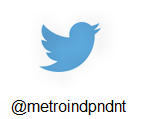Submitted Content
As school districts across Illinois complete their first quarter in the classroom, parents and teachers are convening for individual conferences to review students’ grades and classroom experiences.
In the digital age, such meetings are often not the first time parents and teachers have exchanged information this school year, but the conference may be the first face-to-face interaction, offering an opportunity for a productive discussion and yearlong collaboration. The Illinois State Board of Education and the Illinois PTA offer a variety of resources to help guide this important conversation.
“Parental engagement is critical to student success,” said State Superintendent of Education Christopher A. Koch. “But often times, parents don’t know how to make the most of that precious 10 to 15 minutes together. We encourage parents to see the conference as just one of several opportunities to check-in during the school year as all parties work to ensure student learning and success.”
Decades of research show that children with involved parents have better school attendance; increased motivation; better self-esteem; lower suspension rates; decreased drug and alcohol use; fewer instances of violent behavior; and overall higher grades, test scores and graduation rates. The earlier a parent becomes involved in their child’s education, the more powerful the impact.
Experts ranging from the Illinois Parent Teacher Association to national research and teacher organizations all stress that it is important for both families and teachers to arrive at these conferences prepared. Prior to the conference, families should review grades and recent homework and have a conversation with their child to help prepare for the meeting. The Illinois Parent Teacher Association has resources available for parents – Parents’ Guides to Success, which provide questions parents can use in their conversations, as well as a recent post on One Voice Illinois regarding parent-teacher conferences.
“Families and teachers share the same goal, wanting children to succeed,” said Peg Staehlin, president of the Illinois PTA. “Parent-teacher conferences offer insight on what and why children are learning, as well as how families can help their student succeed. These meetings allow for important communication, which enhances the relationship between families and schools, paving the way for a positive environment for children to grow.”
The Harvard Family Research Project offers a tip sheet for parents that breaks down parent-teacher conferences into three main discussion areas: the child, the classroom and the future.
Kids do better when the adults around them are on the same page, and parent-teacher conferences are the best way to start that meaningful dialogue,” said Dan Montgomery, president of the Illinois Federation of Teachers and a high school English teacher. “You simply can’t replace a face-to-face meeting where a family gets to know the teacher and class, while the teacher gains a better understanding of the student. These are win-win opportunities and critical to success.”
Some districts have completed their conferences for the first quarter, but parents can still take advantage of the resources outlined below for ongoing conversations this school year. The State Board of Education and the Illinois PTA offer some additional tips and suggestions for productive meetings and continued collaboration.
- Remember, parents are a child’s first teacher. Once a child starts school, parents and guardians must partner with their teachers to work toward common goals. The parent-teacher conference is a great place to start and/or support that collaboration.
- Arrive early. Most conferences are scheduled one right after the other. Show up early so you do not lose any of the limited time with a teacher.
- Be prepared. Come with notes about what you want to discuss because it is easy to get sidetracked or forget some of questions and concerns. If you do not get to everything on your list, ask when you might follow up with your child’s teacher(s) and their preferred form of communication.
- Enter with a positive attitude. Both parent and teacher can set the stage for a productive discussion by starting with at least one positive statement, a compliment about a recent lesson or the child’s abilities or work on a project.
- Clarify first. When parents are talking about concerns, be sure to clarify your child’s understanding or experiences with the teacher. You want to establish facts for an informed discussion with the teacher.
- Ask your child’s teacher to show, not tell. Have your child’s teacher provide specific examples of your child’s work or behavior. If the teacher says, “Johnny is struggling with math,” ask to see examples where he is having problems. Is it with several topics or just with one specific concept?
- Give teachers context and insight into your child. You know your child best. Take a moment to describe what they are like at home, what interests and excites them and what issues at home may be affecting them at school (e.g., parent losing a job, divorce, death in the family).
- Focus on learning. Do not limit the discussion to how your child is doing at school; ask how they can do even better. Refer to the questions in the PTA Parents’ Guides to Student Success or another list of suggested questions from Edutopia.
- Ask how you can help at home. Find out how you can learn on a daily basis what homework has been assigned. If your child needs extra help, ask about support services available from the school or community organizations. If your child needs more challenging work, ask how you can help your child dig deeper into what is being learned in the classroom.
- Leave with a plan. You and your child’s teacher have probably both raised points that need further action. Spend the last minute or two of the conference summarizing what you need to follow up on with your child as well as actions the teacher will be taking in the future.
Resources:
The National PTA (www.pta.org) provides a “Parents’ Guide to Student Success” at http://www.pta.org/files/Common%20Core%20State%20Standards%20Resources/2013%20Guide%20Bundle_082213.pdf.
An Illinois PTA blog entry on parent-teacher conferences is at http://onevoiceillinois.wordpress.com/category/family-engagement.
The National Education Association (NEA) has also put out a list of tips to prepare for Parent-Teacher Conferences at http://www.nea.org/tools/tips/18858.htm.
The Harvard Family Research Project offers a tip sheet on the parent-teacher conference at http://www.hfrp.org/var/hfrp/storage/fckeditor/File/Parent-Teacher-ConferenceTipSheet-100610.pdf.
The Illinois Family Engagement Framework offers advice at http://www.illinoisparents.org/ISBE.aspx.
An ISBE fact sheet on family engagement is at http://www.isbe.net/hot-topics-archive/SY2015/family-engagement-fact-sheet-sy15.pdf.
An article on parent-teacher conferences is at
Submitted Content




